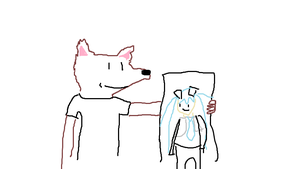10696981
Business Key Terms Flash Cards
Description
No tags specified
Flashcards by James Watson, updated more than 1 year ago
More
Less

|
Created by James Watson
over 7 years ago
|
|
Resource summary
| Question | Answer |
| Costs | Amounts incurred by a business as a result of its trading operations |
| Demand | The amount of a product or service that customers are willing and able to pay at a given time |
| Market | Any place (e.g. physical, electronic) where buyers and sellers come together with a view to exchanging transactions |
| Market Growth | The percentage growth in the size of the market, measured over a specific period |
| Inputs | The resources (land, labour, capital, enterprise) that go into producing goods and services |
| Cash Flow | The movements of cash into (“inflows”) and out of (“outflows”) a business |
| Entrepreneur | An individual who sets up and runs a new business and takes on the risks associated with the business |
| Location | The pace (or places) from which a firm does business. Can be both a physical location and also virtual. |
| Limited Liability | Shareholders are only liable for the money they have invested - not for the overall debts and liabilities of their company |
| Unlimited Liability | Unlimited liability describes the potential risk that sole traders and partnerships face. They are liable for the debts of the business |
| Trademark | A word, symbol, or phrase used to identify a particular company’s product and differentiate it from other companies’ products |
| Working Capital | The amount of money that a business has available to conduct its day-to-day activities |
| Budget | A detailed plan of income and expenses expected over a certain period of time |
| Enterprise | The process by which new businesses are formed in order to offer products and services in a market |
| Fixed Cost | Costs that do not vary with the level of output – e.g. rent, salaries)Franchisee The person or company which operates a franchised business format - under licence from a franchisor |
| Opportunity Cost | The cost of a decision as measured by the benefits foregone of the next best alternative |
| Revenue | The income or sales that a business achieves in a period. Calculated by multiplying selling price per unit x units sold. |
| Sole Trader | A one-person business with unlimited liability for the debts of that business |
| Partnership | A legal form of business operation between two or more individuals who share management and profits |
| Public Limited Company | It is a limited liability company whose shares may be freely sold and traded to the public, with a minimum share capital of £50,000 and usually with the letters PLC after its name. |
| Private Limited Company | A private limited company, or LTD, is a type of privately held small business entity. This type of business entity limits owner liability to their shares, limits the number of shareholders to 50, and restricts shareholders from publicly trading shares. |
| Profit | The difference between total sales and total costs |
Want to create your own Flashcards for free with GoConqr? Learn more.
